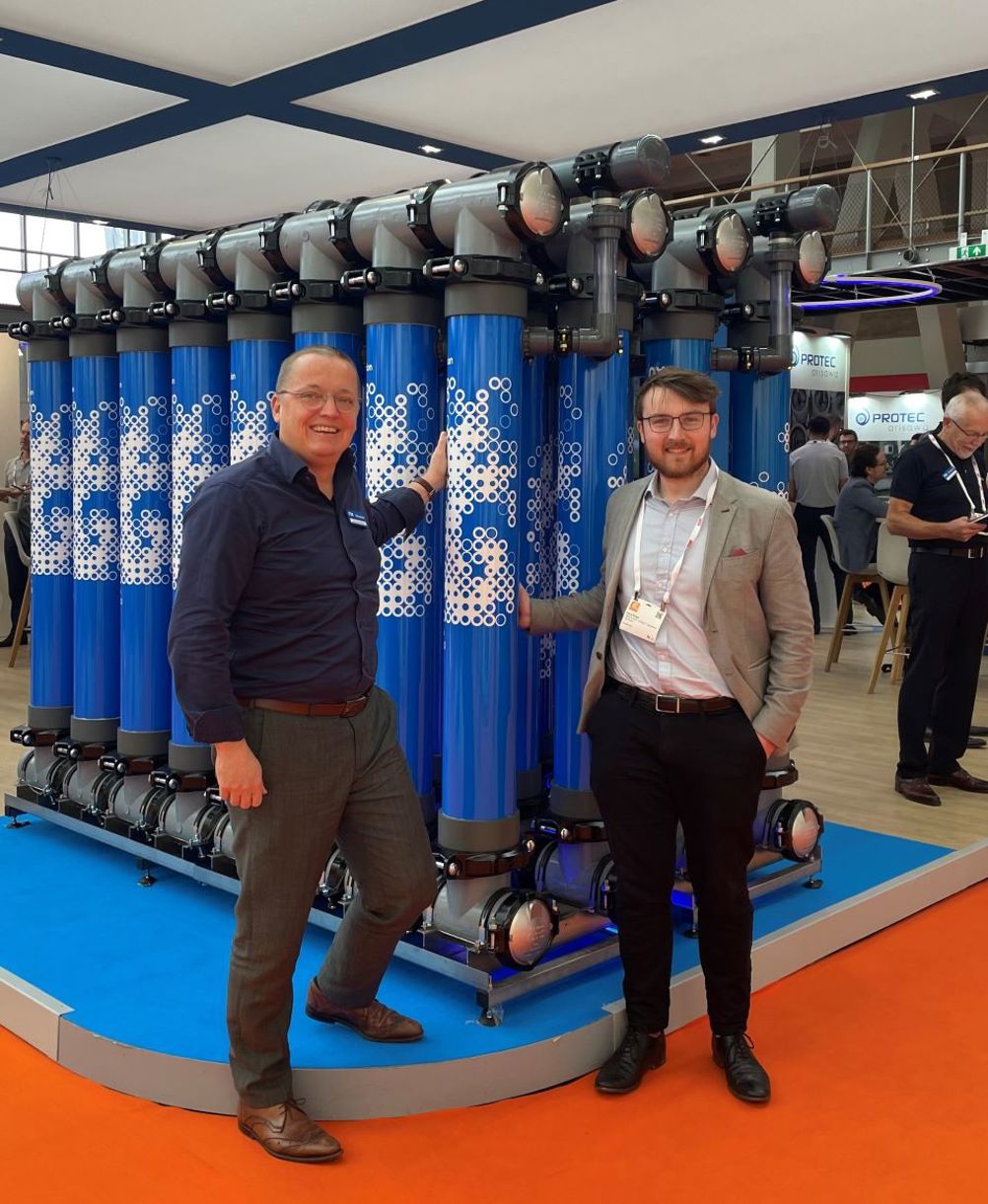What developments in technology do you think will be most significant over the next 20 years for the filtration industry?
To answer your question on technology developments we must first deeply understand the challenges the water world will be facing in the next 20 years. Once we understand these challenges, I am convinced that technology can contribute greatly in addressing these. On the municipal side, we experience the effects water scarcity and pollution almost everywhere nowadays. Also companies increasingly face issues with their water supply and the disposal of their wastewater streams, and also increasingly reuse water from a sustainability perspective. These themes are universal, and the exact drivers and required solutions can vary significantly between regions and applications. What also varies is the speed of development of these themes across regions, which is also strongly influenced by regulation.
I am convinced that, when taking a 20 year perspective, we now already know what to do: enable alternative sources for producing drinking water, treat wastewater and reuse wastewater. And all of this in a sustainable way, so avoiding energy and chemical-intensive solutions such as RO, because we also have an energy transition to work on. The good news is that the technology for this is already there. Our hollow fibre nanofiltration technology, for example, effectively produces drinking water from polluted surface waters and facilitates the reuse of wastewater. And we are doing this by reducing energy consumption with over 70% and chemicals usage with over 90%.
Addressing the challenges for the next 20 requires radical collaboration. Each industry has its own challenges. So we need to work with partners who understand those challenges, and then come to the most efficient solution. We are all part of the water cycle.
What sectors present the most exciting opportunities for the filtration industry?
People need water in order to exist, so they will increasingly take the right to access water into their own hands. Currently, the water industry is a very centrally organised utility business. Pricing for water is relatively low, but in the next 20 years you can expect that shortages will drive prices up, which will enable more decentral solutions and the rise of technologies such as filtration. I think everyone will become much more aware of the necessity and the importance of having the right quantity and quality of water available to them. In 20 years from now, we will all be dealing with the shortage of water and the provision of water for whatever purpose for living, but also for continuing to be in industry or manufacturing.
What key challenges do you expect your industry to face over the next 20 years?
If you look at our business, technologies can solve a lot of things, but we definitely have a couple of challenges in the water world in the future ahead of us. And it's all a matter of making sure that we find the right applications, that we find that the right scale, that we collaborate with the right partners to make the technology work, and that we scale up the application of our technology. That is probably the biggest challenge that the world is currently facing. And we want to contribute to that. It's about water treatment, and being efficient. We all understand there's a lot going on in the world of energy, CO2 footprint, global warming etc. So we have to come with more efficient technologies to address those challenges. And that's exactly what we are doing.

We're here at Aquatech. What has been the personal highlight for you? And also the highlight for NX Filtration?
My background is in eMobility from a charger perspective, so for me personally, being a newbie in the water industry, this Aquatech was really a university. I was a kid in the candy store, looking at all the technologies, companies and people. It has been really a very efficient discovery of the whole industry. And it helps me personally to see where I can apply my experience from my previous working life into scaling, industrialising and solving the water problems of the future. I made a lot of contacts, I can see the NX Filtration team engaging with customers and I can get to know the people in the team. For our company, of course, these moments are really there to engage with our existing customers, and to look forward to the next projects that we're going to do. But we also focus a lot on getting new contacts in, people need to be made aware of our technology, they need to know what it can do. We have been quite efficient in showing our IRD (integrated rack design) rack, the new product that we launched, as well as our new projection tool, which is a highlight for us as a company, because it gives people the possibility to design their own filtration system, depending on the water needed for that particular end user. Whether it's drinking, industry or process water, we now have a tool available with which our end users and OEMs can very quickly design their system with our technology inside. And that also materialises in a couple of collaborations that we have. During this Aquatech, for example, we announced a collaboration with Nijhuis, where we are going to work together to bring NX technology inside the systems that Nijhuis is providing to its end customers. And that for us is the way we want to go forward.
Is the Nijhuis partnership one of the first steps that NX Filtration is taking on that radical collaboration?
It's definitely radical. And we are in it to win it together. And we see a lot of opportunity. And we are looking for further radical approaches in other parts of the world. The technology deserves to be applied to solve the water problems of the future.







